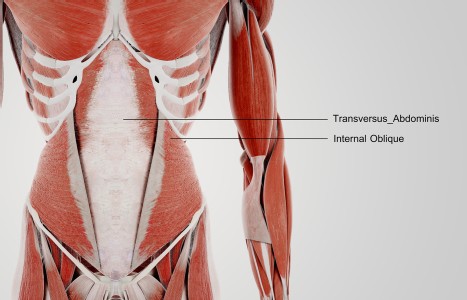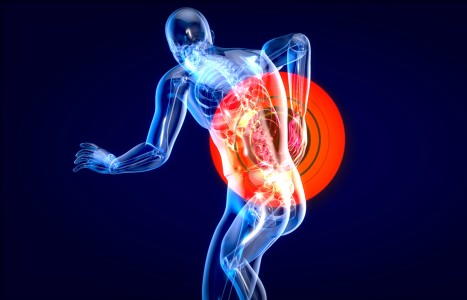TrA-2, my primary needle location, I needle 95% of the time and I think it works the best. You’ll know you have the right point location when you discover the muscle twitching when applying electric stimulation.
The Role of the Small Intestine Official
The Small Intestine Official is known as the separator of the pure from the impure. It is the blood brother to the Heart. This Official is the also called the "transformer of qi" and is also known as the "Alchemist"– its job is to separate what is pure from that which is impure. This Official extracts pure essence from the food we eat so it can be used to nourish the body/mind/spirit, and sends the impure remains for elimination.
Diet is important, but equally important to what we eat is what happens to what we eat. What is absorbed? With a healthy Small Intestine, essential nourishment from even "bad" foods can be extracted. If unhealthy, the "good" from healthy foods may pass through unabsorbed and be eliminated, negating any potential value.
This Official's job is not limited to the physical, but applies as well to our impressions at the level of the mind and spirit. Its state of health or disease has a profound effect on every other Official.
Influence on Other Organs and Functions
No Official could work properly if impurity was left to fester. Wasteful substances tend to coalesce in the body, causing swelling, inflammation, restricted movement and pain. A patient's symptoms may have been labeled "arthritis" or "rheumatism" and we might be tempted to treat symptoms locally. Such treatment may well improve the symptoms for a time, but if the Small Intestine is the primary cause of the imbalance, and is left untouched and untreated, it will continue to retain more and more impurity. The inflammation will recur and will likely get worse over time, accompanied perhaps by new symptoms of the same untreated imbalance.
As long as toxins circulate throughout the system, causing the pollution and breakdown of any and all organs and functions, symptoms must follow and can manifest virtually anywhere – from skin disorders to joint inflammation; from gastrointestinal pain to circulatory impairment, etc.
Consider the consequence of an imbalance in the Small Intestine on the functioning of the Gall Bladder at the mental and spirit levels. The Gall Bladder is the Official of Decision Making and Judgment. How clear and accurate could a decision or judgment be if this Official had only toxic, flawed information from which to choose?
A good decision would be impossible. How well would the Small Intestine's own brother, the Heart or Supreme Controller, rule the Kingdom if he were overcome with negativity? Who would wish to follow a leader who saw only the bad in everything and everyone, and who was suspicious and disdainful of everyone's motives?
The Mental Level
At the mental level, a healthy Small Intestine is akin to an able secretary who sorts through the messages, e-mails, trivia, and other minutia, separating out what is pure and good to be presented to the chief executive: the Heart or Supreme Controller. (See my previous article, "The Heart Official," in the September 2013 issue for more information).
Consider the mental messages we receive daily from the media, as well as in our daily personal interactions. Some of them we can make use of, but much of them we don't need. If this Official is failing, the negative can overwhelm us, as we absorb indiscriminately. As we lose our ability to discern good from evil, we become confused, cynical and pessimistic.
A sick Small Intestine can make us naïve and gullible, mistaking bad ideas for good ones. The mind loses its agility and cleverness if it is unable to sort. It becomes dark, confused, overwhelmed and muddled, unable to figure things out or prioritize. A healthy Small Intestine, even in the midst of an impure environment, will still find a way to extract what is good and discard the rest.
The Spirit Level
Spiritually, with a sick Small Intestine, we might be attracted to toxic spiritual practices, accept dogma blindly, even revel in impurity. If we had a spiritual or religious practice, we might abandon it, seeing no light ahead; there would seem to be no purpose. We would tend to see only the flaws and imperfection in everything and everyone, including ourselves.
In the spiritual realm, this Official, when healthy, allows us to see the essential good in everything and everyone – to see our good and proper spiritual path in life and to know when we are, in fact, on that path. It allows us also to see the good in the spiritual paths of others – to see where we are essentially alike, as well as where we are different in our practices. Good, in this context, means what is right, appropriate, and oriented to the health and well-being of ourselves and others.
At an even deeper level, this Official helps us to separate that part of us that is pure and untainted – consciousness itself – from the processes of the body, mind and emotions, which are always in flux and change, arising and disappearing. Discovery of that part of us that is unchanging is discovering Spirit within us and in everything.
The Points
Each of the acupuncture points has a name, translated from the Chinese characters, which suggests the unique gift it can bring to the patient in need. For examples of specific points on this meridian, see "Using the Spirits of the Points: The Small Intestine Meridian," Part I and Part II [July and August, 2004 issues, respectively].
Generally, points on the Small Intestine are used in the treatment of patients who have been diagnosed as having a primary imbalance (Causative Factor or CF) in the element Fire, and furthermore on the "organ side" (Heart / Small Intestine), rather than the "function side" (Pericardium / Triple Heater) of the Fire element.
The Diagnostics
A Fire CF will manifest a scorched or burnt odor, the color red or ashen gray (lack of red) lateral to the eyes, the sound of excess or lack of laughing, and the emotion of excess or lack of joy.
Diagnosing which side of Fire to treat is determined mostly by interacting with the patient and sensing which side is most challenged on an ongoing basis. There will be no difference in terms of odor, color, sound and emotion as relates to one side of Fire or the other. These sensory perceptions tell us accurately that we have a Fire CF, but not which side is most affected.
Rarely do we treat both sides of Fire on the same patient. Treating the most affected side will almost always benefit the other side of Fire, as well as all of the Officials in other elements that have been distressed by the malfunctioning Small Intestine and Heart. When treating one side of Fire, we do treat points on both Officials. Thus, if we were treating the Small Intestine, we would also treat its brother, the Heart.
The following is a short, and by no means exhaustive, list of things to consider in making this determination:
- On the Heart/Small Intestine side, the patient will be more concerned with issues of control, order, and sorting – separating the pure from the impure, good from evil, truth from confusion.
- On the Pericardium/Triple Heater side, the patient will be more concerned with being liked/loved, and with issues of relationships – trust, boundaries, vulnerability, and attunement (warming) to the surroundings. (These Officials will be the subjects of future articles.)
The Questions
The following questions are useful for self-observation and can be appropriately modified to inquire as to the state of a patient's Small Intestine. It is important to remember that a problem in this Official does not necessarily make anyone a Fire Causative Factor, nor does it mean that the Small Intestine is the major problem.
Any symptom can come from imbalance in any element, as imbalance spreads from one Official and Element to the next. We determine CF only through odor, color, sound and emotion. Yet if you suspect a problem in a Fire CF with the Small Intestine, here are some questions to consider:
- When have you eaten or fantasized eating a wholly pure diet?
- When were you able to identify some experience or input as impure and wrong and discard it immediately?
- When have you remained optimistic in the face of negativity or discouragement?
- When have you felt simply saturated with impurity?
- When have you been overly obsessed with cleanliness or tidiness?
- When have you discriminated based upon no actual knowledge or experience?
- When have you been confused or created confusion?
- When have you been unable to set priorities?
- When have you found a morsel of good in a nasty situation?


